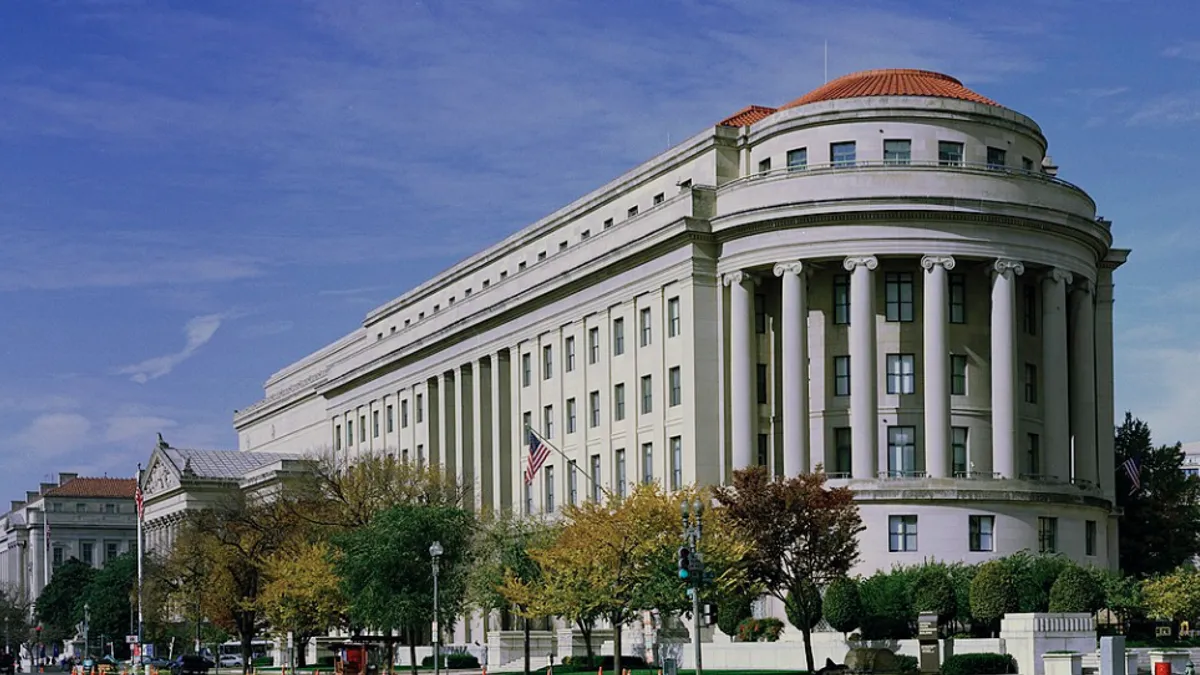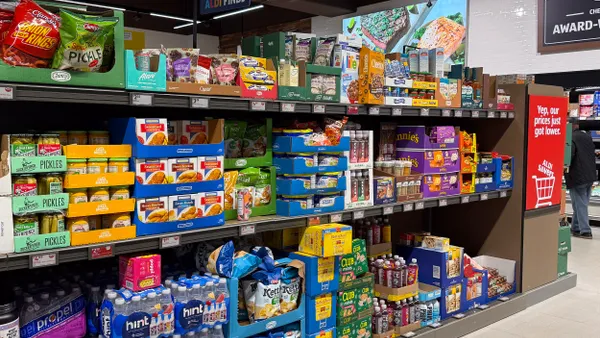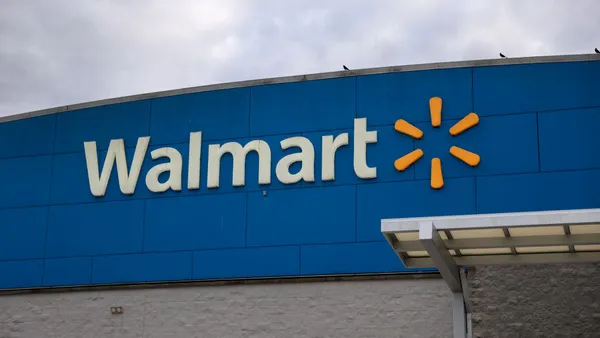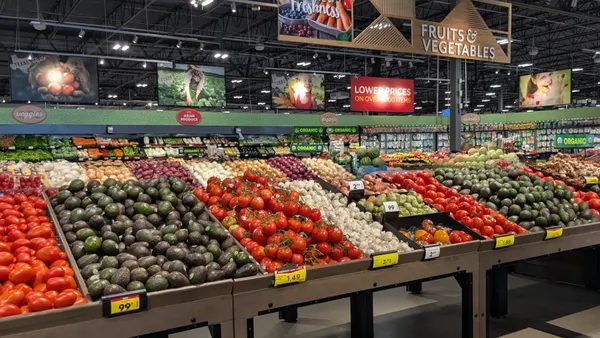Dive Brief:
- The National Grocers Association (NGA) said on Thursday it is “encouraged” by the Federal Trade Commission (FTC) reverting back to rigorous enforcement of a federal law that bans unfair methods of competition.
- The FTC announced the policy change on Thursday, noting that the agency has been inconsistent in recent years with how it identifies and polices anti-competitive practices.
- FTC’s restoration of its enforcement power in this area follows an aggressive push by the grocery trade association demanding that regulators and members of Congress address anti-competitive practices.
Dive Insight:
The NGA has been arguing that “power buyers” in the grocery industry are unfairly making it harder for independents to compete regarding buying power and pricing.
“In the generation that laws against economic discrimination have been ignored, dominant food retailers have grown bigger and bigger, taking advantage of their size to amass greater power, and in turn pressuring their suppliers and limiting customer options,” Chris Jones, NGA’s senior vice president of government relations and counsel, said in a statement.
In its announcement, the FTC noted that its previous policy regarding anti-competitive oversight has been more restrictive since 2015, hindering the agency’s ability to crack down on anti-competitive behavior. Specifically, the FTC has now reactivated Section 5 of the Federal Trade Commission Act, which Congress passed in 1914, and disregarded its previous use of the Sherman Act “rule of reason” test when applying Section 5.
“Through enforcement and rulemaking, the Commission will put businesses on notice about how to compete fairly and legally. This is in contrast with the rule of reason, which requires judges to make difficult case-by-case economic predictions,” the FTC said in a press release.
The FTC’s new policy statement also declared that the agency intends to use its full statutory authority against companies using unfair tactics to compete. However, the new stance is coming under fire by some who argue it goes too far.
Sean Heather, senior vice president of international regulatory affairs and antitrust at the U.S. Chamber of Commerce, called the FTC’s policy statement “breathtaking in scope and extreme in approach,” and argued that the change will “discourage healthy competition, damage U.S. competitiveness, and contribute to rising inflation.” Heather called on Congress and the courts to “rein in the FTC’s overreach.”
International law firm Baker Botts LLP said in a post that courts have limited power over the FTC’s authority regarding Section 5 of the FTC Act.
Jones said NGA will continue to work with the FTC on keeping the food retail industry diverse and competitive.
Last spring, the trade association outlined in a white paper claims of how independent grocers are facing economic discrimination from anti-competitive practices of big box stores and large e-commerce retailers. In a joint effort with the Association of Wholesale Grocers (AWG) and independent grocers, the trade group called on Congress to update and enforce antitrust laws. The trade group has also called on the FTC, the Department of Justice and state attorneys general to examine agreements between grocery “power buyers” and suppliers for discriminatory actions.
The NGA also said last spring that it has talked to FTC regulators, but that it was waiting for agency nominees to be appointed and installed. A few months ago, the NGA supported calls by Commissioner Alvaro Bedoya, who joined the FTC this May, for the agency to resurrect the Robinson-Patman Act, a federal law banning price discrimination by producers.
Last month, The Main Street Competition Coalition, of which NGA is a member, endorsed bipartisan legislation that would, in part, grant the Small Business Administration the authority to study and report on how much antitrust enforcement protects competition by small businesses.











